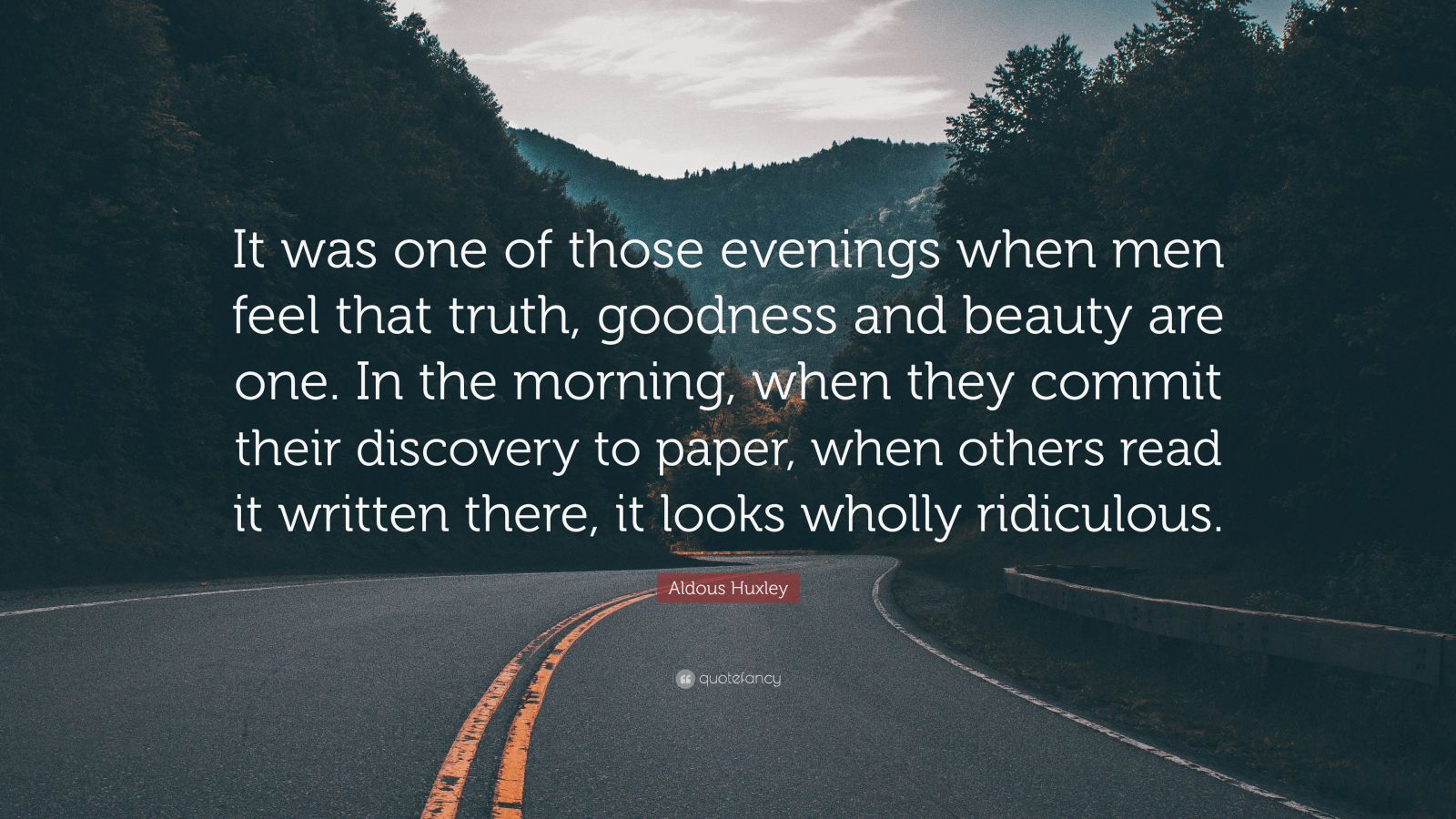

Micawber papa favorite proverb would lead us to suppose. Experience teaches only the teachable, who are by no means as numerous as mrs. Naturally for the artist is endowed with a sensibility and a power of communication, a capacity to put things across, which events and the majority of people to whom events happen, do not possess. Good art possesses a kind of super-truthis more probable, more acceptable, more convincing than fact itself. Mere verisimilitude, mere correspondence of experience recorded by the writer with experience remembered or imaginable by the reader, is not enough to make a work of art seem true. But a text-book of psychology is not a work of artor only secondarily and incidentally a work of art. But it might also strike the reader as being true with regard to himselfthat is to say, acceptable, probable, having a correspondence with his own actual or potential experiences.

The record of a case in a text-book of psychology is scientifically true, in so far as it is an accurate account of particular events. But this, of course, is not the whole story. When the experiences recorded in a piece of literature correspond fairly closely with our own actual experiences, or with what I may call our potential experience experiences, that is to say, which we feel (as the result of a more or less explicit process of inference from known facts) that we might have hadwe say, inaccurately no doubt: this piece of writing is true. The truth of which I was speaking just now is in fact no more than an acceptable verisimilitude. For example, 2+2=4? or queen Victoria came to the throne in 1837? Or light travels at the rate of 187,000 miles a second? No, obviously, you wont find much of that sort of thing in literature. Homer, the Homer of the Odyssey is one of those few. of the great writers of the past incredibly few have given us that. The truth, the whole truth and nothing but the truth how rarely the older literatures ever told it! Bits of the truth, yes every good book gives us bits of the truth, would not be a good book if it did not. The twelfth book of the Odyssey concludes with these words: when they had satisfied their thirst and hunger, they thought of their dear companions and wept, and in the midst of their tears sleep came gently upon them. Later, the danger passed, Odysseus and his men went ashore for the night, and, on the Sicilian beach, prepared their supper prepared it, says Homer, expertly. We can believe it Homer brief description (the too poetical simile is a later interpolation) convinces us. And Odysseus adds that it was the most dreadful and lamentable sight he ever saw in all his explorings of the passes of the sea. The survivors could only look on, helplessly, while Scylla at the mouth of her cave devoured them, still screaming, still stretching out their hands to me in the frightful struggle. Turning back from his post in the bows, Odysseus was in time to see them lifted, struggling, into the air, to hear their screams, the desperate repetition of his own name. There were six of them, the best and bravest of the hero companions. Tragedy and the whole truth, by Aldous Huxley


 0 kommentar(er)
0 kommentar(er)
